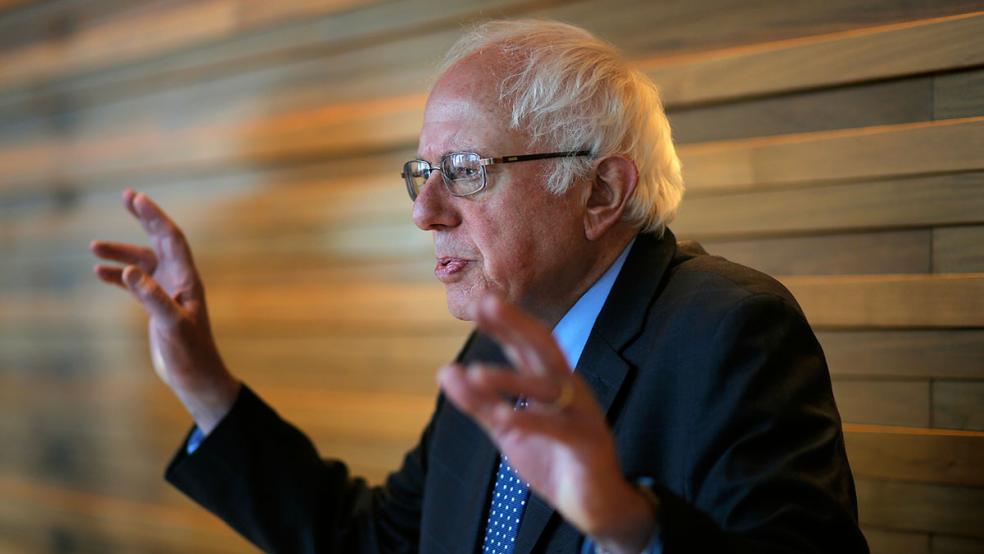A new proposal from Sen. Bernie Sanders (I-VT) and Rep. Ro Khanna (D-CA) would require pharmaceutical companies to reduce prices on some drugs down to levels found in other wealthy countries — or risk losing their monopolies in the U.S. market.
“No other country allows pharmaceutical companies to charge any price they want for any reason they want,” said Sanders said in a statement Tuesday. “Somebody in America today can walk into a pharmacy and find out that the medicine they have been using for years can double, triple or quadruple literally overnight. That needs to change.”
How Sanders’ plan would work: The Prescription Drug Price Relief Act would empower the Secretary of Health and Human Services to systematically compare the U.S. price of a drug to the median price found in five other wealthy countries — Canada, United Kingdom, France, Germany and Japan. If a drugmaker refused to match that median price, the government would approve generic production, ignoring any existing patents or market exclusivities. Generic competitors could then sell their own versions of the drug while paying the patent-owner a royalty.
“Today we’re sending big pharma a message: market exclusivity is a privilege, and when you abuse that by price gouging the sick and aging, then you lose that privilege,” Khanna said. “This bill will bring down drug prices by taking on monopolies and boosting prescription drug competition.”
The Trump connection: The plan echoes the Trump administration’s recent proposal to lower Medicare Part B drug costs by basing them on an index of prices found in other countries such as Germany and France. Politico even referred to the proposal as the “Bernie Sanders-Trump mind meld on drug costs.” But the scope of the Sanders-Khanna plan is much larger, since it would affect all Americans rather than just the Medicare B population.
The responses:
- “I do think it’s fundamentally been a blind spot for us that we grant monopolies for drugs, and we do nothing about companies taking advantage of that monopoly. It’s a fairly reasonable policy to say, ‘We will grant you a monopoly. We will grant it to you for ‘x’ number of years and we will let you charge a lot of money for it. But there will be a limit.’” – Peter Bach, director of the Memorial Sloan Kettering Center for Health Policy and Outcomes and a former Medicare and Medicaid official under George W. Bush
- “This bill would greatly enhance the government's leverage to end or threaten to end legal monopolies in order to curb excessive prices. It would also very effectively end the practice of charging U.S. consumers more than other high income countries, since no company would want to lose its legal monopoly as a consequence of charging U.S. residents prices higher than in the reference countries.” – James Love, director of Knowledge Ecology International, a nonprofit that specializes in intellectual property issues
- “In my view, it’s generally not a good idea to address high drug prices by labeling almost every brand-name drug as excessively priced and then removing all patent rights from the manufacturer. That doesn’t strike the balance we need to address drug prices while maintaining our system of innovation.” – Walid Gellad, director of the University of Pittsburgh’s Center for Pharmaceutical Policy and Prescribing
- “The Prescription Drug Price Relief Act is Big Pharma’s Worst Nightmare” – Social Security Works, a liberal group focused on expanding the social safety net
- “I think it’s just lazy; it’s fundamentally lazy. I think they’re doing it this way because they don’t want to have this debate.” -- Craig Garthwaite, health economist at Northwestern University’s Kellogg School of Management
- “The proposed legislation stands almost no chance of gaining traction in a Republican-controlled Senate and is sure to face stiff opposition from the drug industry.” – Politico
What happens next: While the bill will no doubt draw withering fire from the well-funded pharmaceutical industry (see the Number of the Day below), the fact that both President Trump and some leading Democrats are talking about price controls on drugs in the U.S. suggests that something could happen on the issue next year. “I think the fact that everyone is discussing this — and you can’t escape it — suggests there will be action,” health economist and former Obama administration health adviser Zeke Emanuel told Politico.




